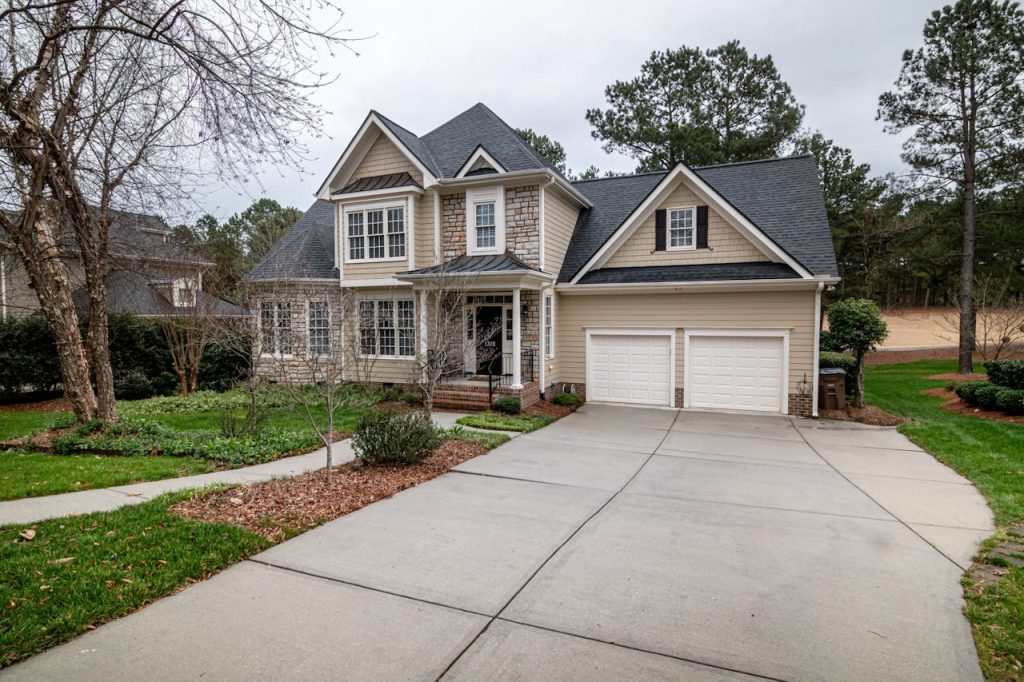
Image source: pexels.com
Buying a home is one of the biggest financial moves most people ever make. It’s exciting to imagine a dream house, but stretching your budget to buy more house than you can truly afford can have serious consequences. Many people underestimate how buying too much house can ruin long-term wealth, leaving them with regrets years later. When you overextend on a mortgage, the ripple effects impact every part of your financial life. Understanding how this choice can affect your future is key to making a smart, sustainable decision.
Long-term wealth is built on smart, consistent money choices—not just big investments, but also avoiding costly mistakes. Owning a home should help you build equity and stability, not create stress and limit your options. Let’s break down the main ways that buying too much house can ruin long-term wealth.
1. Stretching Your Budget to the Breaking Point
When you buy more house than you can reasonably afford, a huge chunk of your monthly income goes toward your mortgage, insurance, and property taxes. This leaves less money for everything else: savings, investing, travel, and even daily expenses. Suddenly, you’re living paycheck to paycheck, even if your income is decent.
Financial experts often recommend keeping your housing costs below 30% of your gross monthly income. If you push past this threshold, it’s easy to find yourself in a bind. Over time, this stress can erode your quality of life and make it much harder to accumulate wealth.
2. Less Money for Investing and Retirement
Buying too much house can ruin long-term wealth by crowding out other essential financial goals. Every extra dollar spent on your home is a dollar that isn’t going into your 401(k), IRA, or brokerage account. While homeownership can build equity, it’s not as liquid or diversified as investments in stocks or bonds.
If your house payment leaves you unable to contribute to retirement accounts or take advantage of employer matches, you’re missing out on years of potential compounding. This missed opportunity can make a huge difference decades down the line, when you’re ready to retire and need a healthy nest egg.
3. The High Cost of Maintenance and Surprises
Bigger homes come with bigger responsibilities. Higher utility bills, increased property taxes, and more expensive repairs all add up. Many buyers forget to factor in these ongoing costs when they fall in love with a house that stretches their budget.
When you’re already maxed out from your mortgage, an unexpected repair—like a new roof or HVAC system—can force you to take on high-interest debt or dip into emergency savings. This cycle of unexpected expenses is one way that buying too much house can ruin long-term wealth and create financial instability.
4. Reduced Flexibility and Increased Financial Risk
Owning a home that strains your finances means you have less flexibility to handle life’s changes. If you lose your job, face a medical emergency, or need to relocate for work, a large mortgage can limit your options. Selling a home isn’t always quick or easy, especially in a slow market.
This lack of flexibility can trap you in a stressful situation, forcing you to make tough choices or accept losses. Financial security comes from being able to adapt, and buying too much house can tie your hands when you need options most.
5. Opportunity Cost: What You Give Up
There’s a big opportunity cost to putting most of your money into a house. Instead of investing in education, starting a business, or building a diversified portfolio, your cash is tied up in a single, illiquid asset. While a home can appreciate, it doesn’t always outpace inflation or other investments.
For some, this means missing out on compound interest or the flexibility to pursue passions and opportunities. Over the long haul, these missed chances can have a bigger impact than you realize when you first sign those mortgage papers.
6. Emotional and Relationship Stress
The financial strain of buying too much house can spill over into your personal life. Money stress is a leading cause of anxiety and conflict in relationships. When every bill feels like a burden, it’s tough to enjoy your home or plan for the future.
Instead of feeling secure, you may find yourself worrying about every expense or arguing over finances with loved ones. This emotional toll is another hidden way that buying too much house can ruin long-term wealth, by robbing you of peace of mind and stability.
Building Wealth Means Living Within Your Means
Buying too much house can ruin long-term wealth by creating a financial burden that’s hard to shake. The best path to financial freedom is living below your means, not at or above them. A home should offer comfort and security, not constant stress.
Before you buy, run the numbers honestly. Consider not just the mortgage but all the extra costs and how they fit into your bigger financial picture. If you keep your housing costs reasonable, you’ll have more money for investing, flexibility for life’s changes, and a healthier path to lasting wealth.
What are your thoughts on balancing your dream home with your financial goals? Share your experiences and questions in the comments!
What to Read Next…
- 8 Real Estate Mistakes That Erode Wealth Before Retirement Ever Starts
- 6 Reasons Real Estate Wealth Disappears Within One Generation
- 9 Times It’s Smarter to Rent Than Buy Even Long Term
- 10 Signs You’re Living Above Your Means Without Realizing
- How a Reverse Mortgage Can Derail a Family’s Entire Financial Plan

Travis Campbell is a digital marketer/developer with over 10 years of experience and a writer for over 6 years. He holds a degree in E-commerce and likes to share life advice he’s learned over the years. Travis loves spending time on the golf course or at the gym when he’s not working.
Leave a Reply